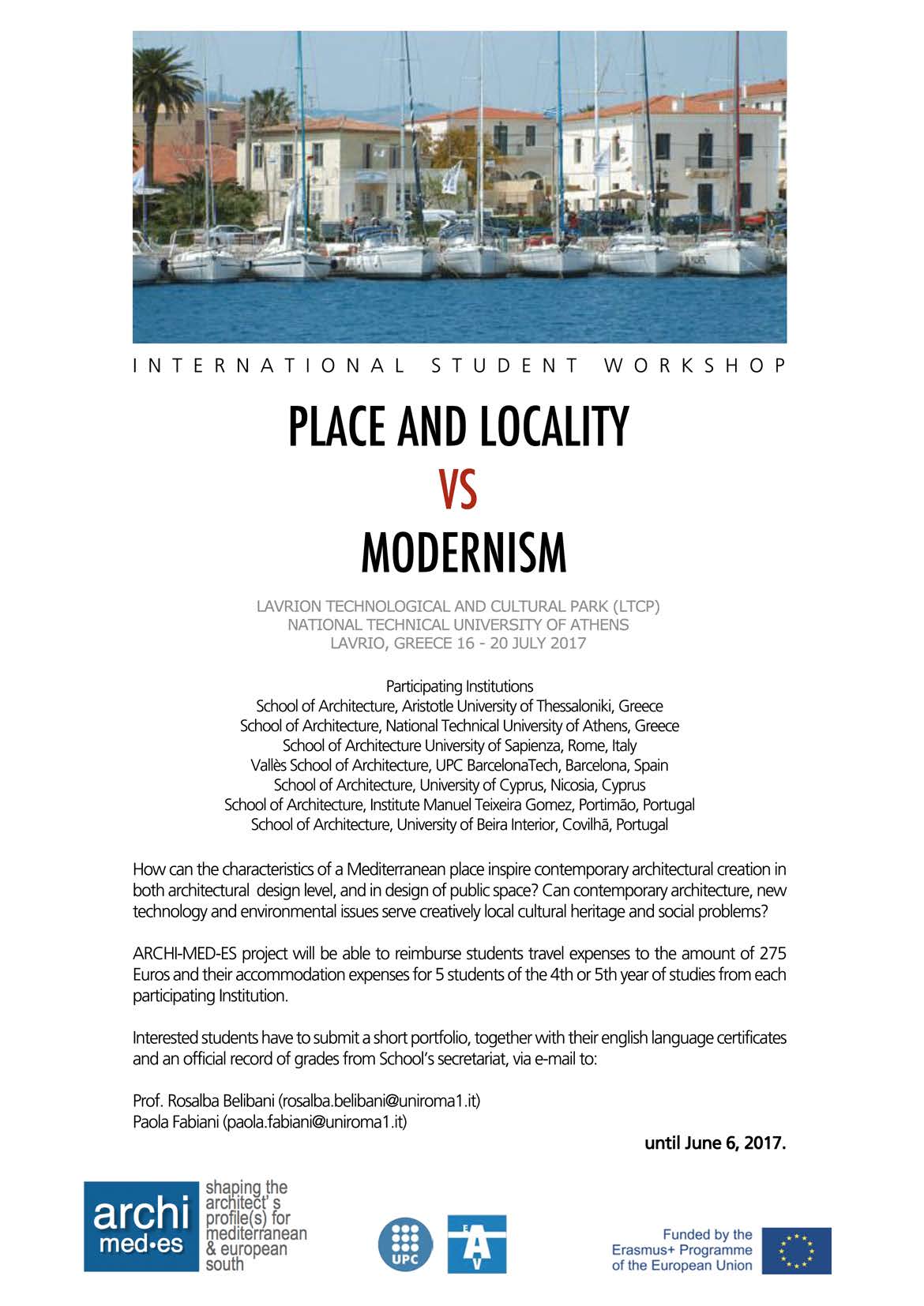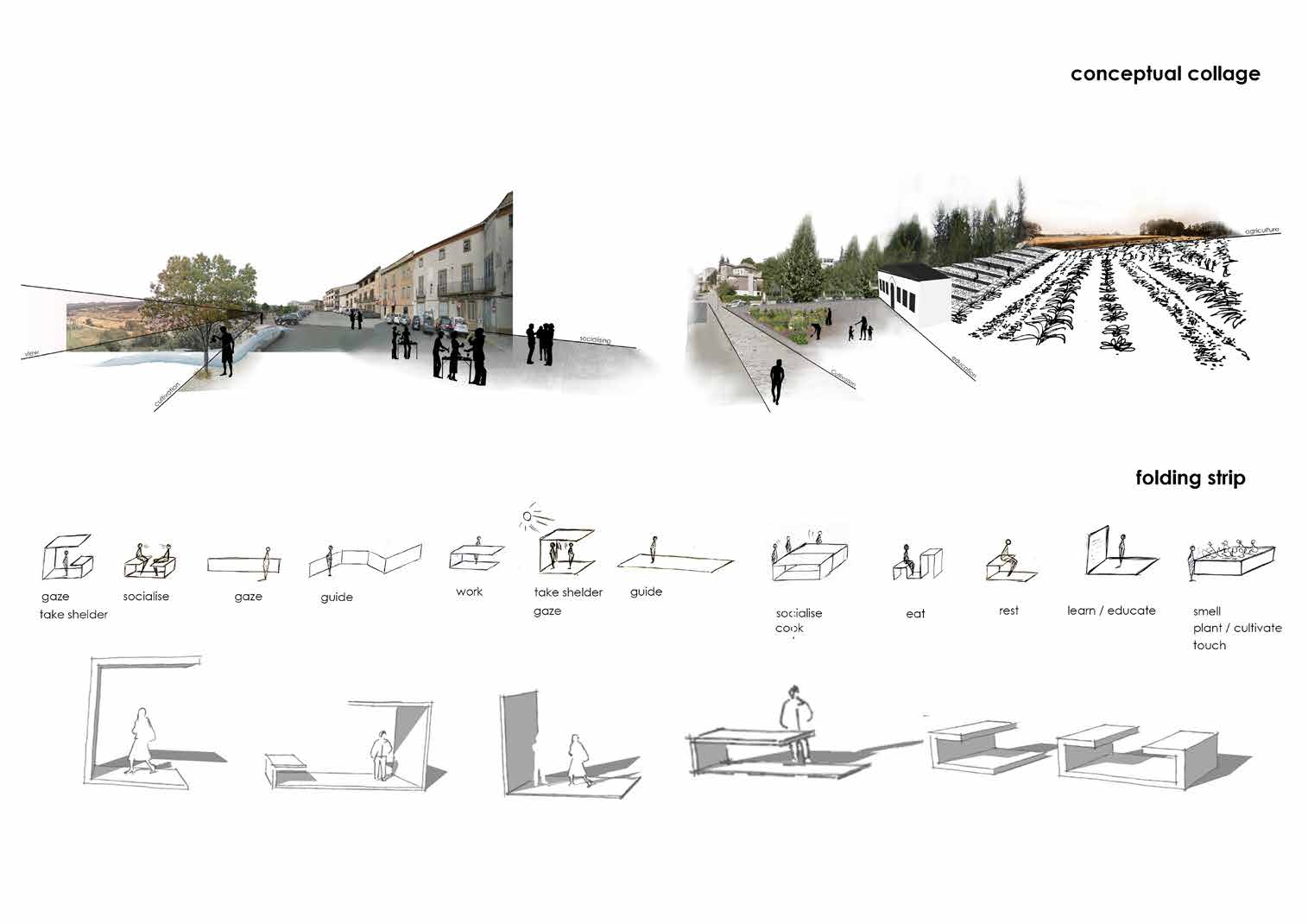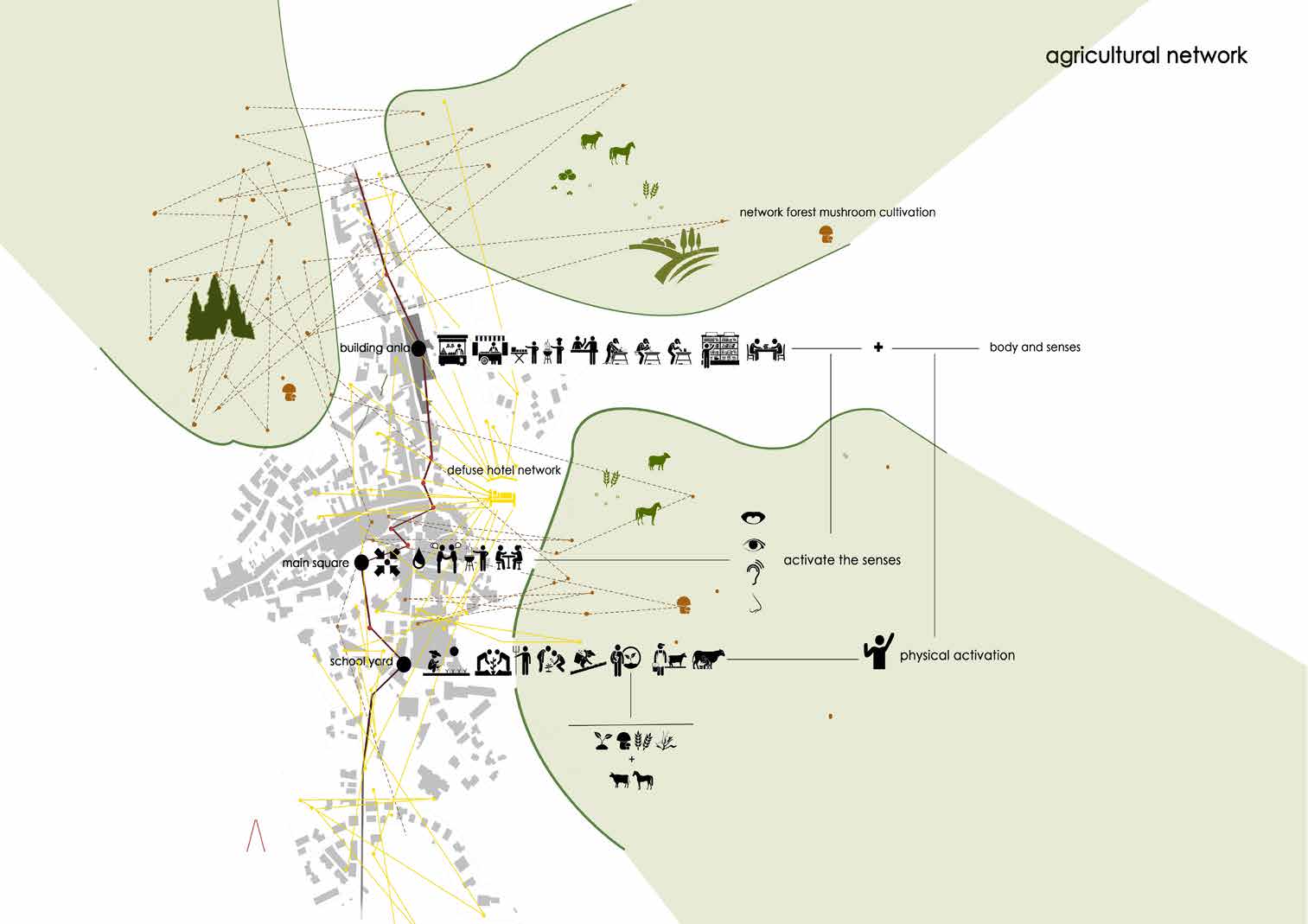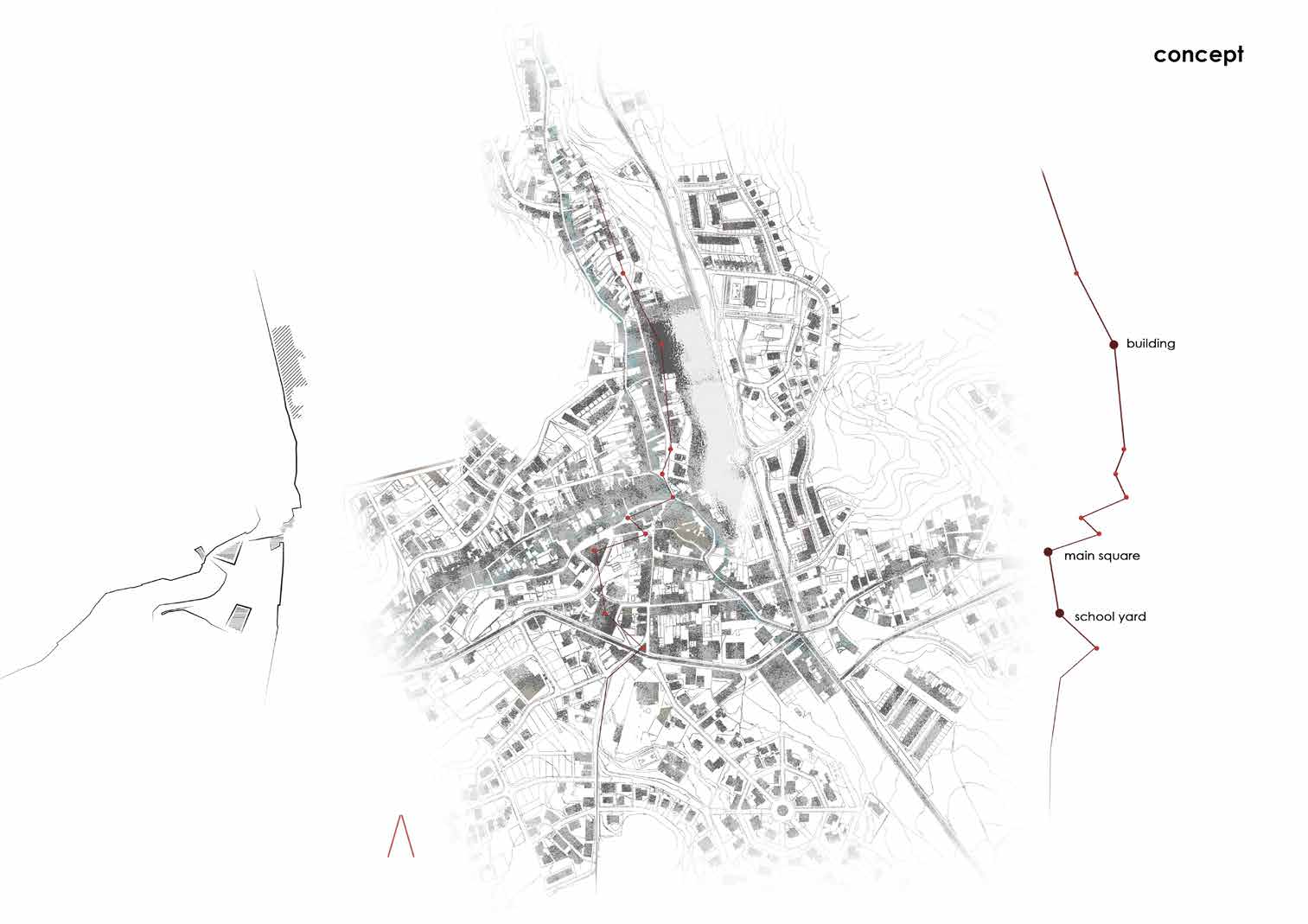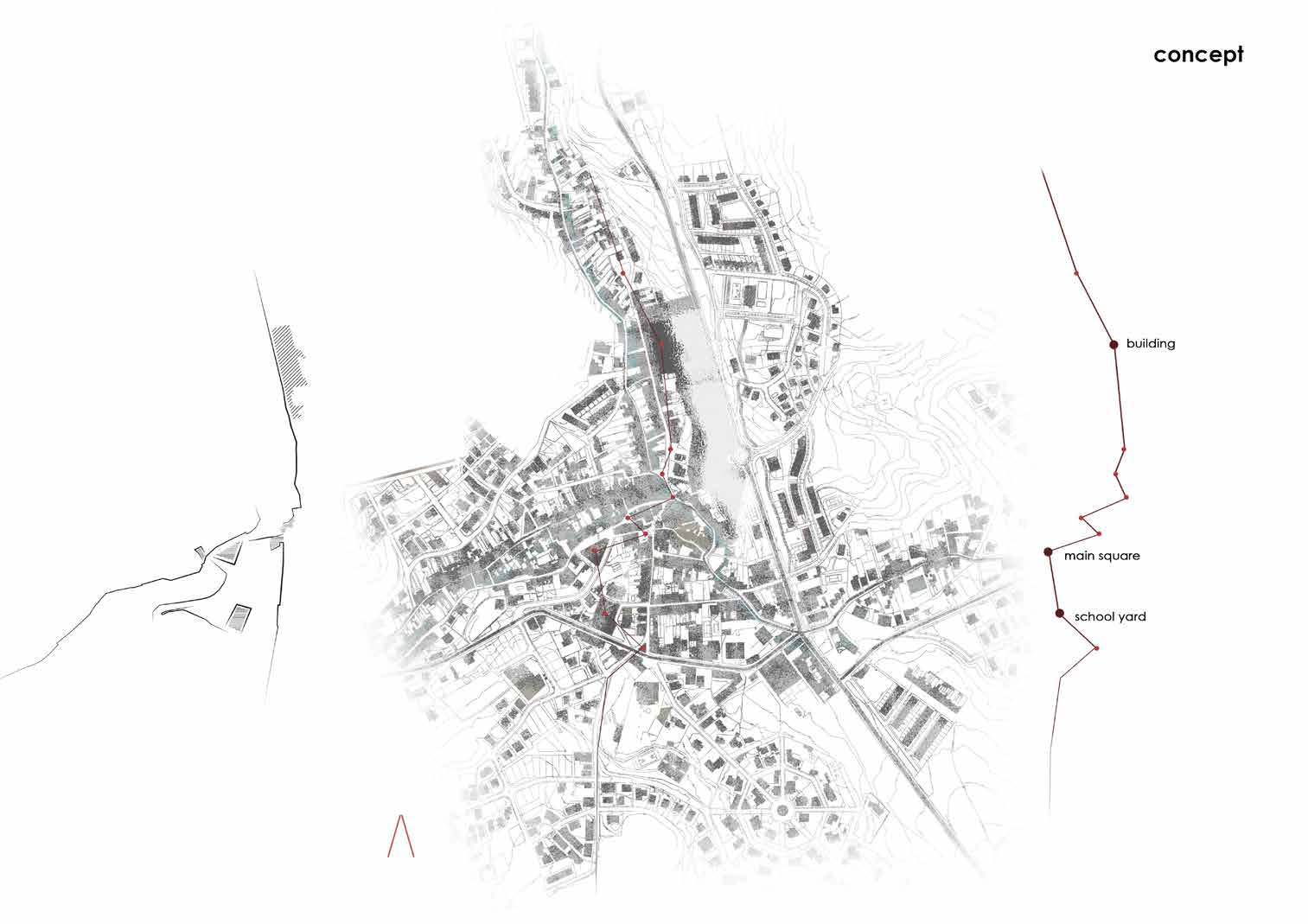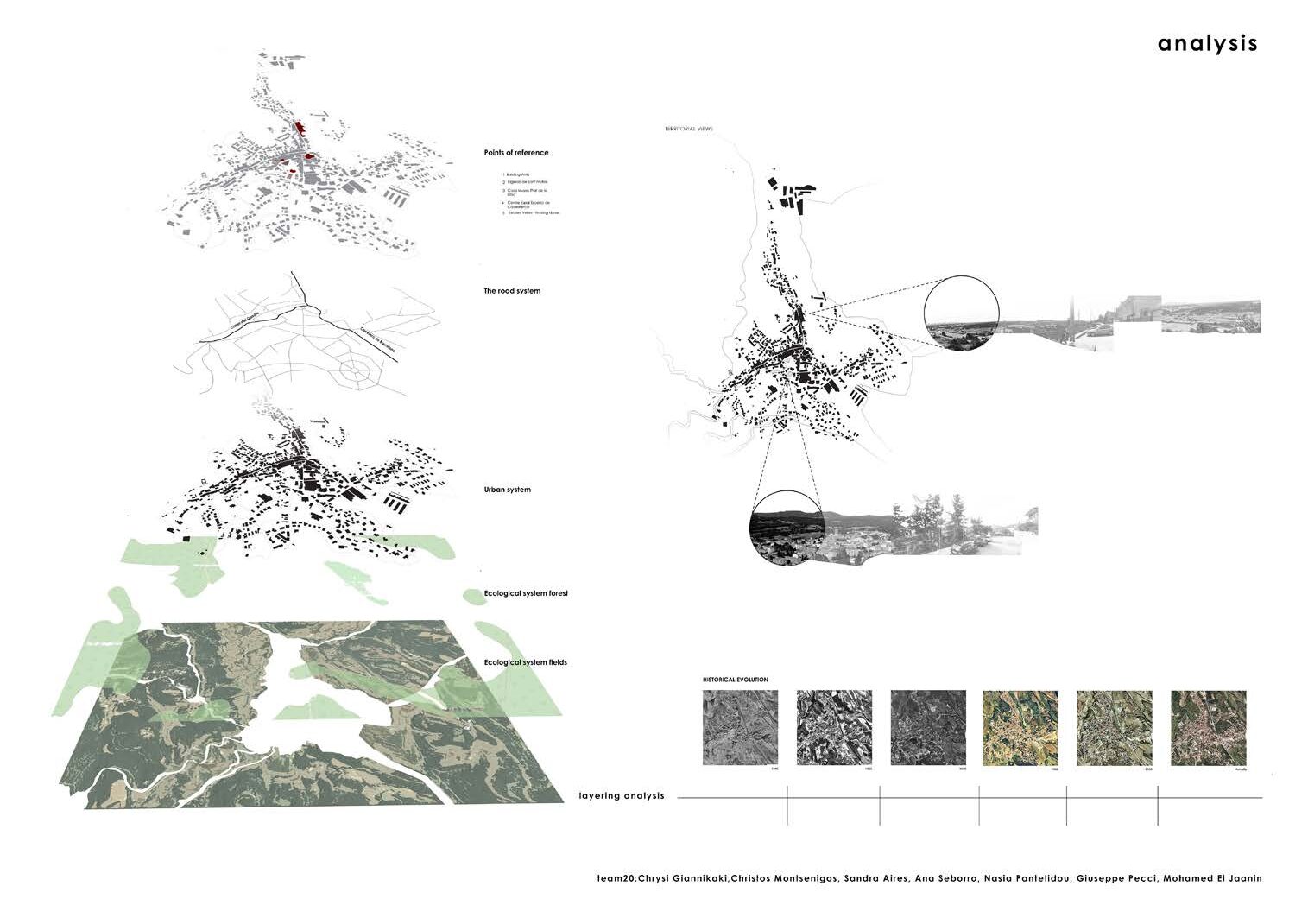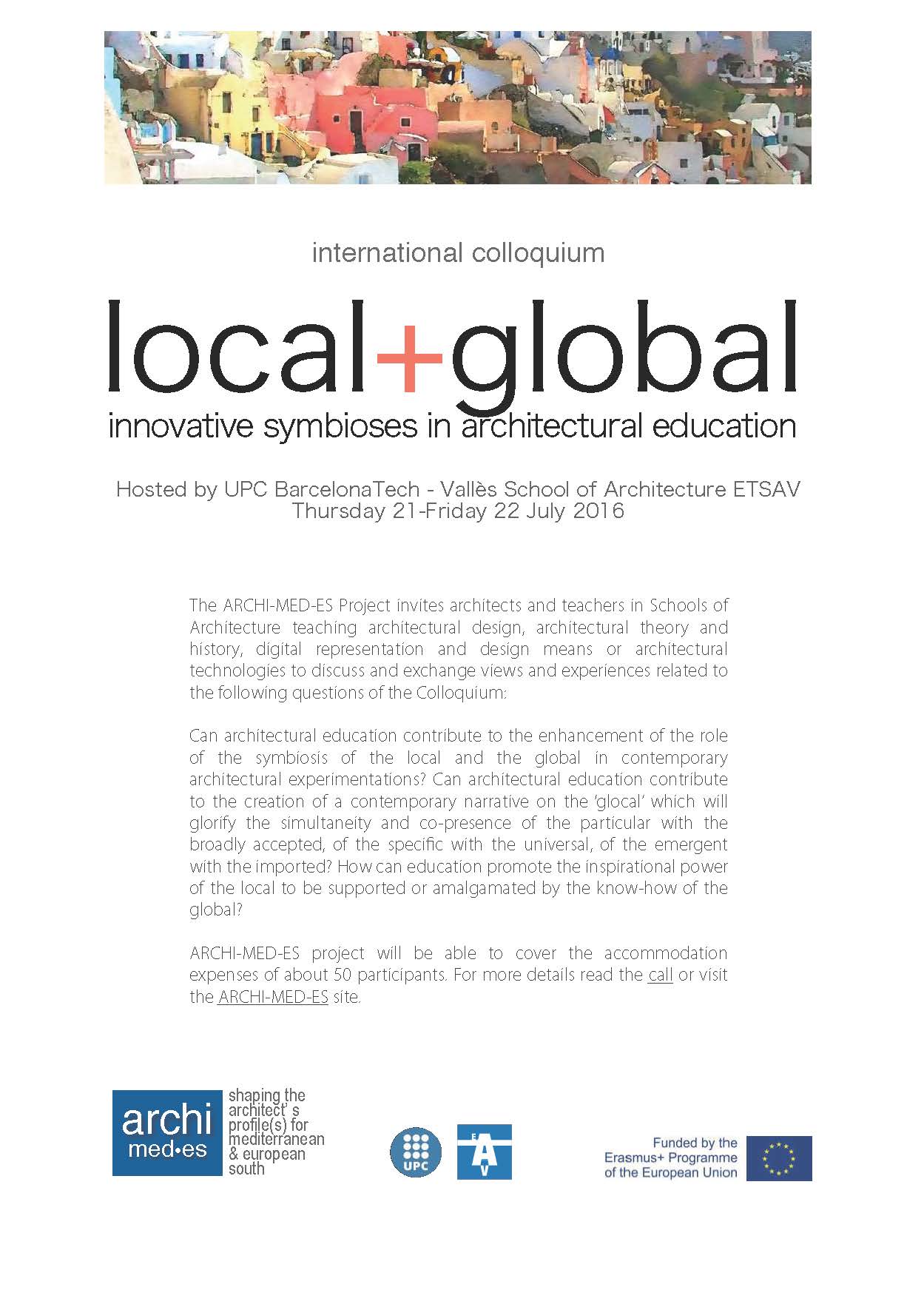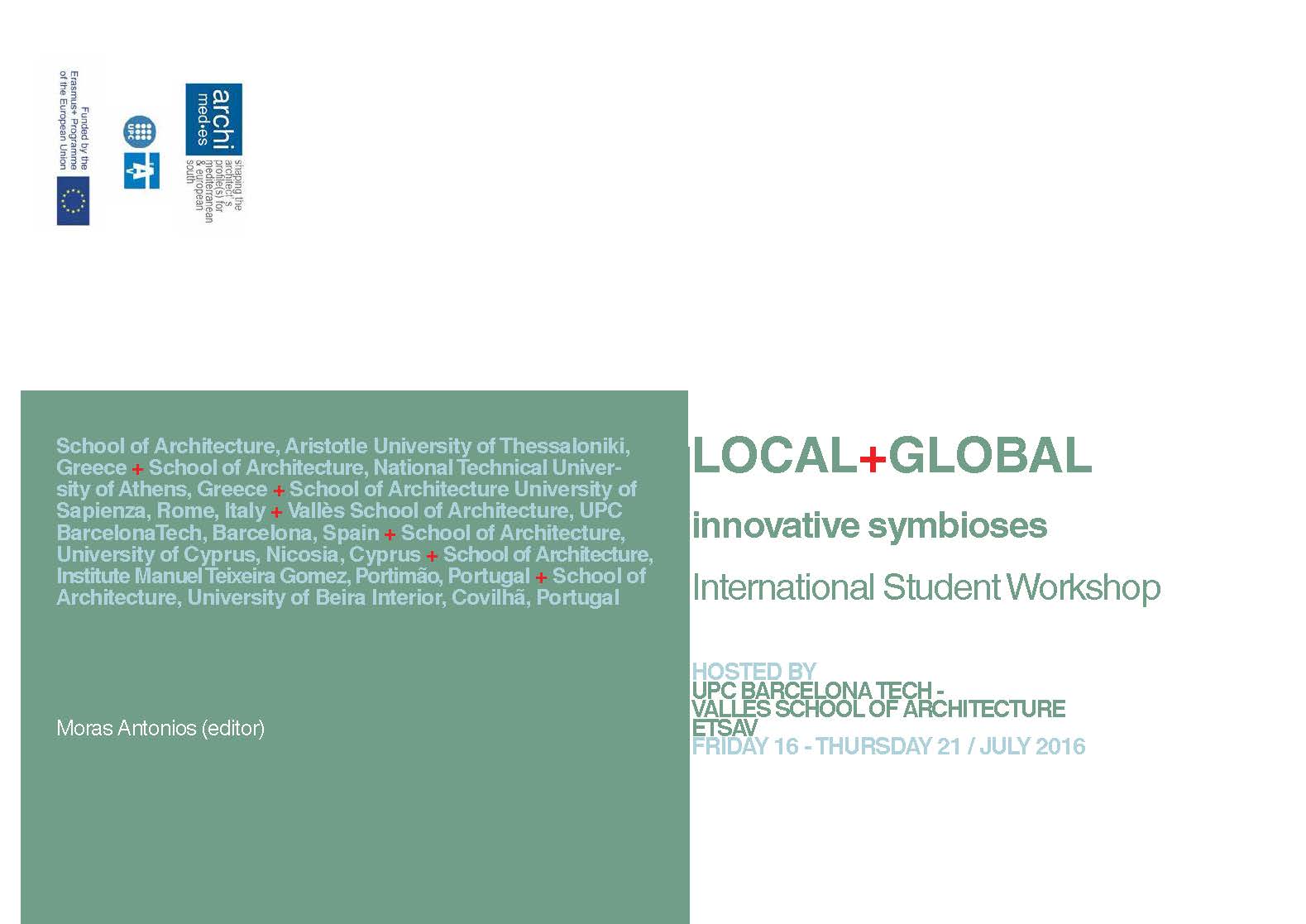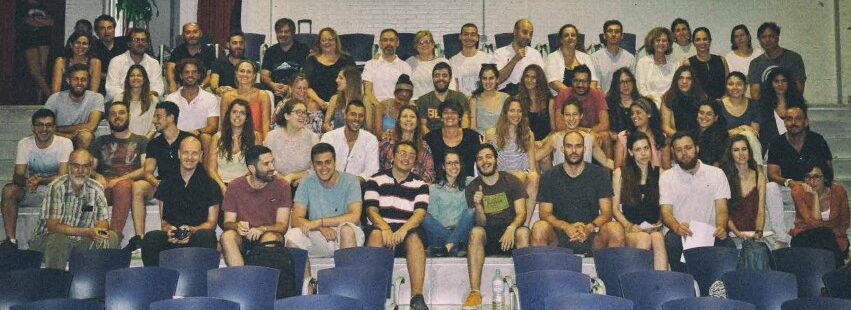Erasmus + Archi-Medes
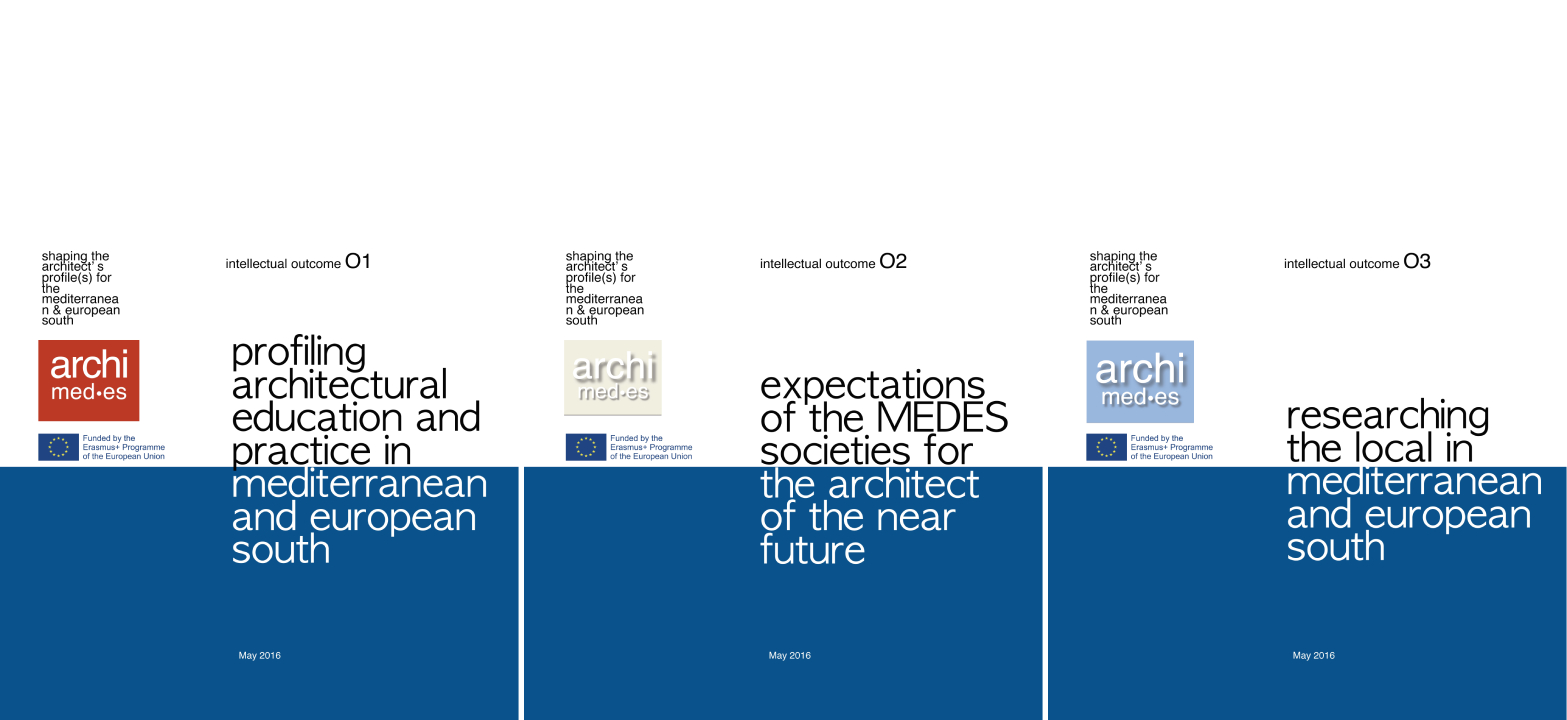
Abstract
Il punto centrale da cui si è partiti è la definizione di quale sia il PROFILO che un laureato in architettura deve avere.
Il progetto Archi-medes, in accordo con il quadro normativo della UE, ha definito tale profilo attraverso 3 aspetti fondamentali:
- SAPERE/KNOWLEDGE che il laureato deve possedere dopo aver completato gli studi;
- COMPETENZA/SKILL che il laureato deve sviluppare durante il percorso di studio;
- MENTALITA’/ATTITUDE che il laureato deve sviluppare attraverso il sapere e le competenze acquisite.
ARCHI.MEDES project was an experiment. It was an initiative to (re)consider, through the collaboration among schools of architecture, professional bodies, and interdisciplinary teams, the education of architects in the Mediterranean and European South (MEDES). Taking into account the competitive internationalization of higher (architectural) education, the project had as its main aim to develop strategies and policies for sustainable academic and professional growth, enhancement of quality, and excellence, based upon local strengths and particularities.
ULTERIORE APPROFONDIMENTO (TESTO ESTESO)
ARCHI.MEDES project was an experiment. It was an initiative to (re)consider, through the collaboration among schools of architecture, professional bodies and interdisciplinary teams, the education of the architects in the Mediterranean and European South (MEDES). Taking into account the competitive internationalization of higher (architectural) education, the project had as its main aim to develop strategies and policies for sustainable academic and professional growth, enhancement of quality and excellence, based upon local strengths and particularities.
Four interdependent parameters motivated this initiative:
1. The threat of European diversity due to the ways European policies on higher education were implemented by institutions leading to their homogenization rather than to the expected harmonization.
2. The fast changes happening in our interdependent societies making the profile of the architect unpredictable for the near future raising important responsibilities to schools of architecture who continue to educate architects according to what an architect is today.
3. The financial crisis which ruthlessly affected the countries of the European South and created very frustrated conditions for architectural education and high unemployment in professional practice.
4. The significant changes happened in the way we understand learning and teaching shifting from a teacher-based to student-based education, an input-oriented pedagogy to an output-oriented one, from knowledge-based priorities to competences-based priorities, from a problem-based to a project-based education.
ARCHI.MEDES project was planned to be an experimental laboratory for strategies and policies for architectural education in the MEDES Countries aiming at:
• raising awareness of the need for specific graduates' profiles knowledge breadth, creative skills and competences appropriate to local demands and needs so that their graduates can be more flexible and creative both in the local and international labor market.
• supporting, elaborating and providing teaching approaches and specific pedagogies able to assure creativity and other learning outcomes appropriate for the local needs and demands.
• elaborating incentives to support a diversity of strategic choices for curricula development through which partner SA could be able to develop regional hubs of excellence and eventual specialization.
• encouraging partners to reveal and to intensify efforts on their individual strengths.
• enhancing the relevance of available human capital through structures of staff development.
• strengthening the collaboration among SA encountering similar problems, demands and needs.
The development of the project was based upon four main (hypo)theses:
1. There is not a single excellence model.
2. It is a mistake nowadays to educate architects on the basis of what an architect today is.
3. Schools of architecture must expand the existing spectrum of learning outcomes.
4. The definition of the expected profile of the graduate is a necessary condition for a sustainable academic growth of the School.
The methodological approach followed by the project was based upon two different and simultaneous paths. The one was a bottom-up path which was looking towards the local conditions and needs and tried to structure architects' profile based upon what the local society needs or expects from a graduate architect as to what he/she must know, be able to do and be competent to think. The second was a top-down path, which started upon what is conceived, at European level, (policies, associations, previous programs) as the appropriate profile of the architect.
The project run inquiries, consultations and data collection as well as processing in order to define architectural profiles appropriate for the particularities of MEDES Countries. It elaborated teaching approaches and pedagogical strategies assuring these profiles. The project organized student workshops and staff training seminars as well as international conferences on the above issues.
ARCHI.MEDES project aimed at nourishing a collaboration Culture between education and practice, a strategic development culture by the institutions dealing with architectural creation, creativity culture encouraging innovation and speculative thinking, and a quality culture conceived as emerging from an interdependent world.
PUBBLICAZIONI
"International student workshop "local+global. innovative symbioses" Archi-Medes Erasmus+ Hosted by UPC BarcelonaTech - Vallès School of Architecture ETSAV Friday 16 -Thursday 21 July 2016" / Belibani, Rosalba. (2016).
"International student workshop "PLACE AND LOCALITY vs. MODERNISM", Archi- Medes Erasmus +, National Technical University of Athens, Lavrion Technological and Cultural Park (LTCP), Lavrio, Greece 16 - 20 July 2017" / Belibani, Rosalba. (2017).
"Place and Locality vs. Modernism: Examples of emerging new paradigms in Architectural Design”, ARCHI.MEDES Erasmus + Project. / Konstantinidou, Elena & Nikolaou, Dimitra. (2023).
ALTRI ESITI
WORKSHOP:
- International Student Workshop “LOCAL + GLOBAL - innovative symbioses” ospitato da UPC Barcelona Tech Vallès School of Architecture ETSAV. 16-21 luglio 2016
- International Student Workshop “PLACE AND LOCALITY VS. MODERNISM” svolto presso il Lavrion Technological and Cultural Park (LTCP), Atene. 16-20 luglio 2017
CONFERENZE:
- Conferenza Internazionale “ARCHI-MEDES INTERNATIONAL CONFERENCE” svolta presso il Lavrion Technological and Cultural Park (LTCP), Atene. 22-23 luglio 2017
